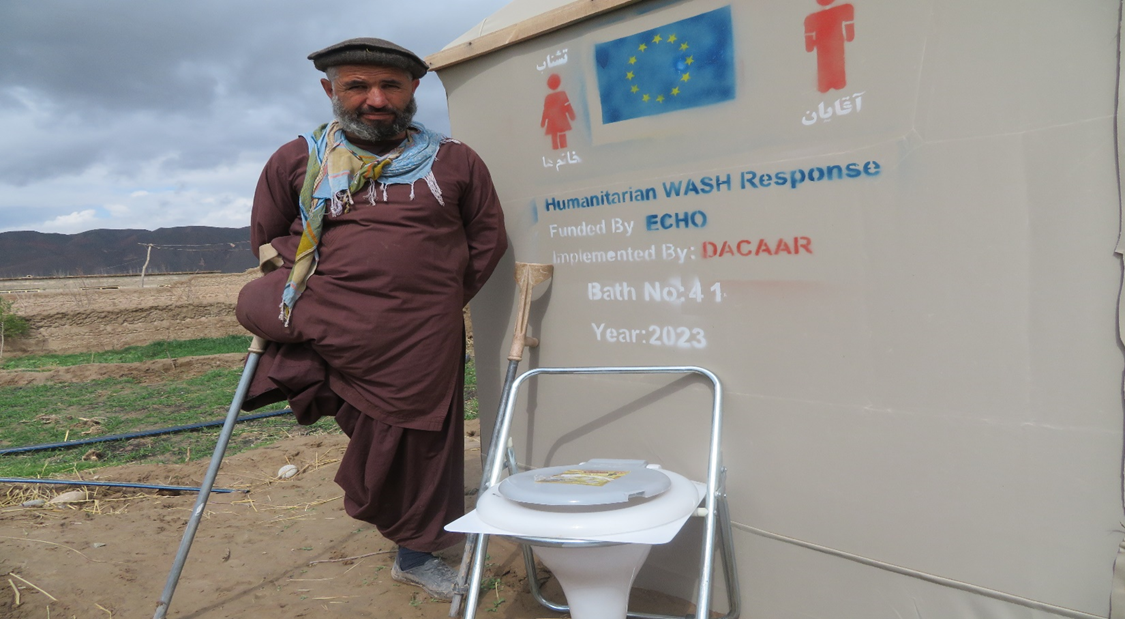Water-borne infections are avoided by practicing good hygiene
In rural Afghanistan, the lack of sanitation facilities is causing waterborne diseases to occur frequently. Only 27% of the rural population has access to adequate sanitation facilities.
The population living in the remote areas of Takhar province is facing similar issues with lack of access to sanitation and safe drinking water.
Mohammad Naim, a resident of Ming Choqor village in Khwaja Ghar district, talked about the situation in his village, saying that “they defecated in the open and frequently suffered from various waterborne diseases due to the unhygienic environment.”
In response to this critical situation, DACAAR initiated the "EU Humanitarian WASH Response" project on May 1, 2023, to provide safe drinking water, portable equipment and education in hygiene practices to reduce sufferings and loss of life, with financial support from EU https://civil-protection-humanitarian-aid.ec.europa.eu/index_en.
This project will conclude on April 30, 2024. Through this project, DACAAR conducted hygiene promotion sessions, distributed hygiene kits and constructed the Pipe Scheme and the EBL (Emergency Bath and Latrine).
Mohammad Naim mentioned that after receiving hygiene messages, the villagers paid more attention to cleanliness, resulting in a reduction of waterborne diseases.
He expressed his gratitude to DACAAR for the distribution of hygiene kits, which included a portable defecation chair that was very helpful for him, as it was moveable and could be used anywhere. He added that “he was in trouble with open defecation since he became disabled and needed other people's help, but now he feels comfortable with the chair.”
Villagers are pleased with the hygienic environment and are committed to practicing the hygiene messages in their lives in the future. They thanked DACAAR and suggested extending such initiatives to other villages and launching agricultural and vocational projects.
 |
| Improving Live with Dignity: Naim, feels relaxed and comfortable after receiving a commode chair. A small change makes a big difference in his daily life. Photo Credit: Sediqullah Hasand |

Written by: Israrullah Sahil
 Danish
Danish